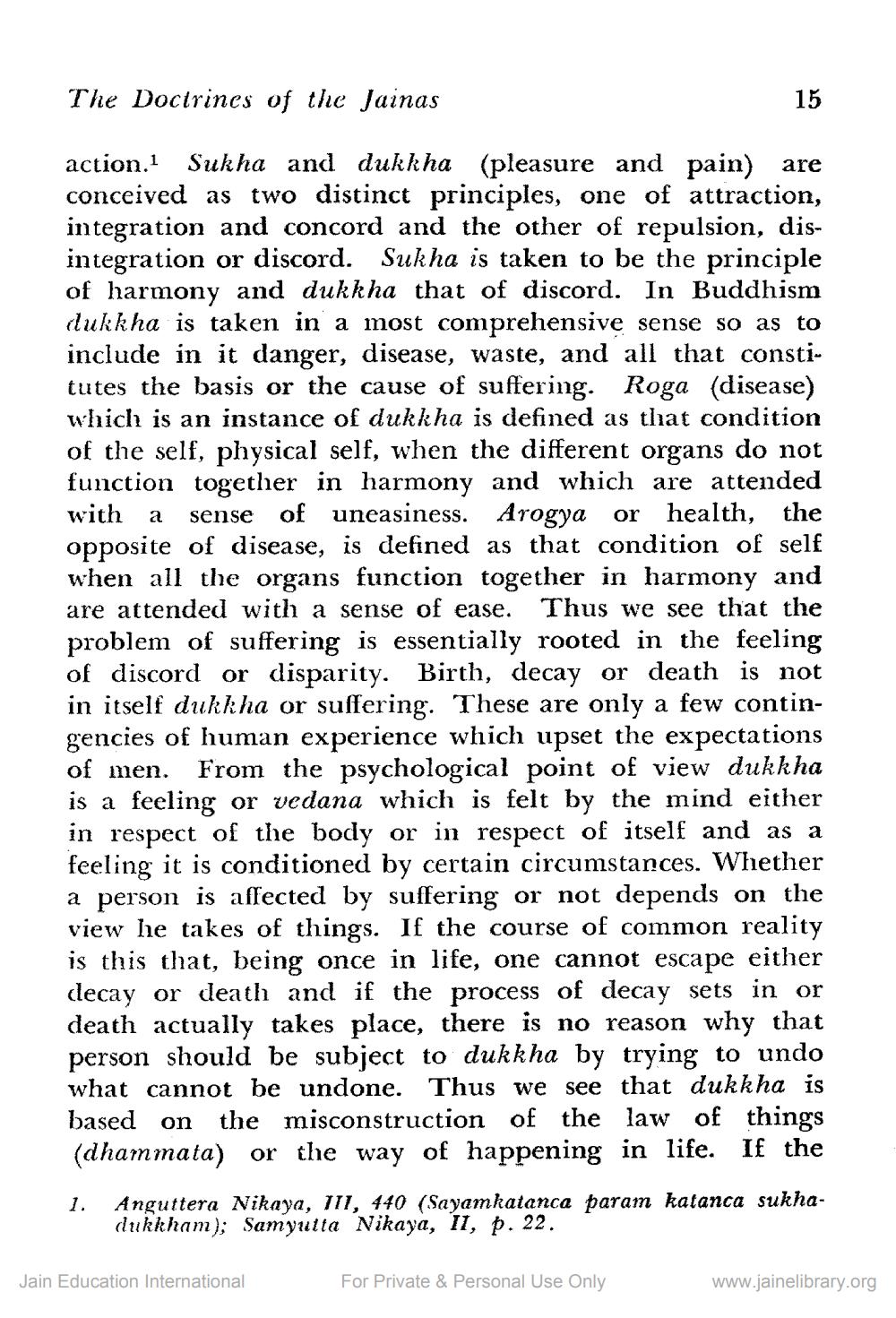________________
The Doctrines of the Jainas
15
action.1 Sukha and dukkha (pleasure and pain) are conceived as two distinct principles, one of attraction, integration and concord and the other of repulsion, disintegration or discord. Sukha is taken to be the principle of harmony and dukkha that of discord. In Buddhism dukkha is taken in a most comprehensive sense so as to include in it danger, disease, waste, and all that constitutes the basis or the cause of suffering. Roga (disease) which is an instance of dukkha is defined as that condition of the self, physical self, when the different organs do not function together in harmony and which are attended with a sense of uneasiness. Arogya or health, the opposite of disease, is defined as that condition of self when all the organs function together in harmony and are attended with a sense of ease. Thus we see that the problem of suffering is essentially rooted in the feeling of discord or disparity. Birth, decay or death is not in itself dukkha or suffering. These are only a few contingencies of human experience which upset the expectations of men. From the psychological point of view dukkha is a feeling or vedana which is felt by the mind either in respect of the body or in respect of itself and as a feeling it is conditioned by certain circumstances. Whether a person is affected by suffering or not depends on the view he takes of things. If the course of common reality is this that, being once in life, one cannot escape either decay or death and if the process of decay sets in or death actually takes place, there is no reason why that person should be subject to dukkha by trying to undo what cannot be undone. Thus we see that dukkha is based on the misconstruction of the law of things (dhammata) or the way of happening in life. If the
1.
Anguttera Nikaya, III, 440 (Sayamkatanca param katanca sukhadukkham); Samyutta Nikaya, II, p. 22.
Jain Education International
For Private & Personal Use Only
www.jainelibrary.org




